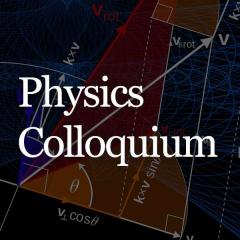Speaker: Professor Ignatios Antoniadis
Affiliation: Le Laboratoire de Physique Théorique et Hautes Énergies (LPTHE), Le Centre national de la recherche scientifique (CNRS), Paris (France) and Albert Einstein Centre, Institute of Theoretical Physics (ITP), University of Bern (Switzerland)
Abstract
Particle physics studies the elementary constituents of matter and their fundamental forces. Very short distances are explored by particle collisions at very high energies, creating conditions similar to those governing the Universe just after the Big Bang. This is the reason that the same physics is also explored by cosmology through observations on the sky at very large distances.
The current theory of particle physics, called Standard Model, provides an accurate description of all known physical phenomena in the microcosmos and its last ingredient, needed to explain the origin of mass of elementary particles, was discovered at the Large Hadron Collider (LHC) at CERN in 2012. On the other hand, the Standard Model of cosmology describes very well observations, confirmed recently by the Planck satellite experiments, pointing to the existence of a new dark sector of the Universe containing dark matter and dark energy.
Particle physics and Cosmology are now entering into a new era of unexplored territories beyond the current standard models with new challenges and open questions to answer. A global effort is ongoing both in theory and in experiment, promising new discoveries towards unveiling the fundamental laws of Nature.
About Physics colloquium
The Physics Colloquium series hosts a range of speakers from Australia and abroad. The series explores a variety of topics and everyone is welcome to come along. The seminars are open so there is no need to register your attendance.
If you would like to sign up for colloquium announcement emails, you can join the mailing list by sending a blank email to:
- For UQ email addresses: physics-colloquium-others-join@lists.science.uq.edu.au
- For non-UQ email addresses: physics-announce-external-join@lists.science.uq.edu.au
(Note: if you receive physics-all emails, you should already receive these and don't need to sign up again).

